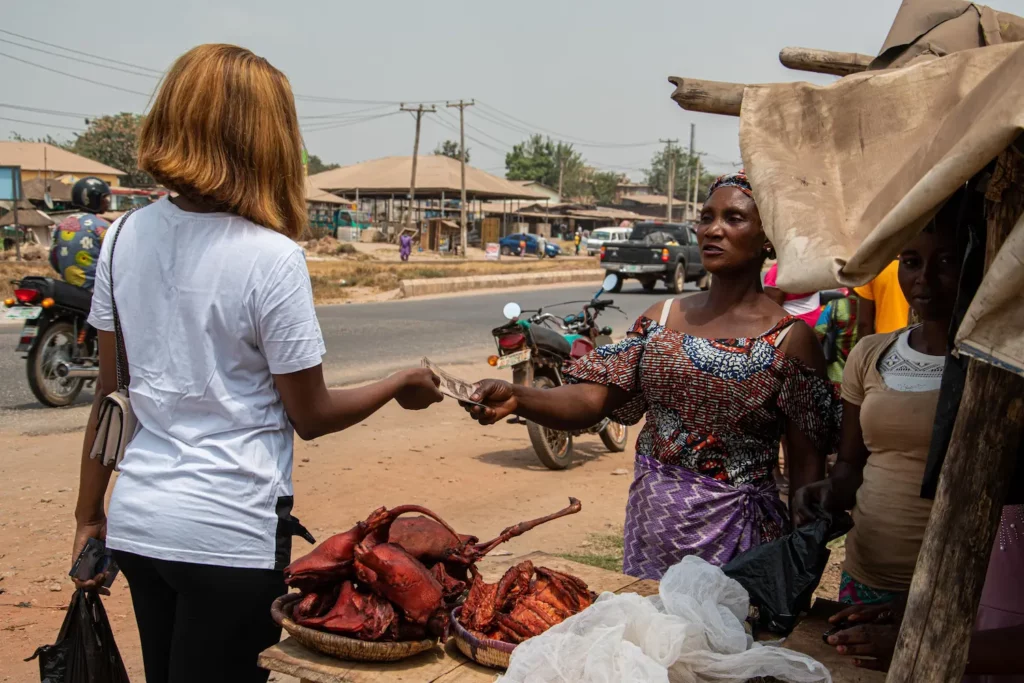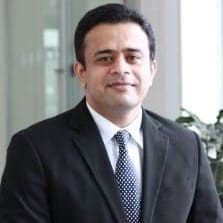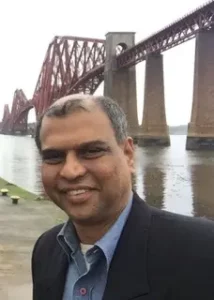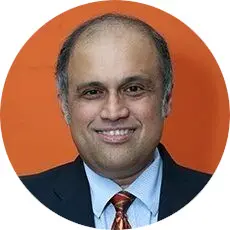
In Africa, poverty is a problem that is pervasive. In 2022, about 460 million people on the continent were surviving on less than $1.90 (U.S.) per day, the threshold for extreme poverty. According to Statista, Nigeria was home to over 12% of the world’s population living in extreme poverty in 2022, with the poverty line set at $1.90 USD per day. Additionally, the Democratic Republic of the Congo was home to about 10% of the world’s very poor. Tanzania, Madagascar, and Mozambique are among African states having sizable populations of the underprivileged.
MSMEs are a key factor in the continent’s employment and economic growth. Between 95 million and 100 million MSMEs are operating in Africa now, employing over 300 million people. According to research, Africa needs to generate 18 to 30 million new employment per year through 2030. MSMEs play a significant role in the development of Africa. In certain nations, like the economy of Kenya, they account for almost 90% of all enterprises and 30% of all employment prospects. Women in Kenya manage half of the 1.3 million MSMEs in the East African investment hotspot, making up 46.5% of the work force in a nation with a 34.8% poverty rate. The informal sector is home to 85% of MSMEs with female owners. A whopping 85% of firms in Ghana are MSMEs, accounting for around 70% of the GDP of the nation. In East Africa, MSMEs make about 90% of all enterprises and 80% of all jobs. African governments and international organizations have been supporting the continent’s economy’s recovery following the COVID-19 outbreak. The UNDP claims that the intervention, which focuses on women and youth-led MSMEs, builds on the organization’s support in young innovators by giving 42 young innovators a seed capital of roughly $500,000 to help them grow up their enterprises. Under its Adaptive Safety Net Project, Ethiopia has mobilized a $312.5 million grant and a $200 million credit facility (SEASN). The National MSME Survival Fund, which has 60% set aside for female entrepreneurs in Nigeria, assisted the recovery of SMEs in the western portion of Africa.
Women make up the majority of workers in Africa’s informal economy, according to the World Economic Forum. Only one-third of MSMEs with official registration are owned by women. Many prospective young and female business owners lack access to mentors and supportive networks. Because of this, MSMEs owned by women are more likely than those owned by males to have lower sales and annual turnover, fewer staff, smaller sizes, and shorter lifespans. The majority of female business owners are found in the African continent. The female entrepreneurship rate in sub-Saharan Africa is 25.9% of the adult female population, or one in four women, according to the Global Entrepreneurship Monitor (GEM) 2016/17 Women’s Report. A McKinsey analysis claims that without financial support for African women-owned enterprises, the continent will miss out on $316 billion in GDP by 2025. According to the SME Finance Forum, 52% of women-owned micro, small, and medium-sized businesses in sub-Saharan Africa have financial constraints, which is 10 percentage points more than the global average. A total of $48 billion is estimated to be the formal financing gap for women-owned micro, small, and medium-sized businesses in the region, including $15.6 billion in the agricultural sector alone. The African Development Bank group established Affirmative Finance Action for Women in Africa (AFAWA) to address these issues. AFAWA provides funding, technical support, and an enabling environment by supporting legal, policy, and regulatory reforms to get rid of the structural barriers that prevent women from starting and running businesses. The $42 billion financing gap that African women entrepreneurs face is something that AFAWA seeks to overcome. AFAWA provides a multifaceted solution to the challenges African women entrepreneurs face. Over $804 million has been approved by the Bank thus far for loans to 3,500 female entrepreneurs in 23 African nations.
One of the main obstacles to the growth of small enterprises in Africa is a lack of readily available financing. The African Union (AU) revealed its intention to implement a guarantee program for micro, small, and medium-sized enterprises (MSME) in order to hasten the economic transformation of the continent by facilitating the small firms’ access to affordable financing. Banks would receive assistance from the credit guarantee scheme so they could lend to MSMEs. The 100,000 Micro, Small and Medium Enterprises (MSMEs) Initiative, a collaboration between the African Union Development Agency NEPAD (AUDA-NEPAD) and the Ecobank Group, aims to help MSME businesses on the continent reposition themselves, rebuild, and recover from the economic shock brought on by Covid-19. To speed up Africa’s economic transformation, provide the necessary skills, and increase resilience against the economic shock brought on by the worldwide pandemic, AUDA-NEPAD has created the 100,000 MSMEs program. The 100,000 MSMEs program initiative aims to increase the capacity of one million businesses in Africa through entrepreneurship and business training to improve access to finance and new markets while establishing networks for support and incubation to support structural transformation of youth and women owned MSMEs towards success. In addition to facilitating interactions with ecosystem partners like financiers and connections to trade and markets, this initiative will be able to produce a database to improve evidence-based policy recommendations to African Union (AU) decision-making bodies. It will also be able to enable policies that encourage bottom-up engagement with young people and women entrepreneurs. Three components of this initiative are being developed and set up: MSME Academy, MSME Finance, and MSME Marketplace. MSMEs academies with particular curriculum in line with each country’s local enterprises were introduced in August 2020 in 8 different nations. The eight nations are Ghana, Kenya, Niger, Nigeria, Rwanda, Togo, Cote d’Ivoire, and Chad. MSMEs finance is the next step, and in this first phase, beneficiaries who match the criteria in these eight nations will each get a total of US$2 million as working capital.
The youngest population in the world is found on the continent of Africa. According to statista, as of 2021, almost 40% of the population was under the age of 15, which is higher than the global average of 26%. Youth underinvested in Africa require immediate attention. The African Development Bank’s youth entrepreneurship investment initiative aims to foster young people’s entrepreneurial spirit and business growth. To support young entrepreneurs more successfully, the proposed youth entrepreneurship investment banks would coordinate financial and non-financial actors and partners. Through its Jobs for Youth in Africa Strategy, which aims to empower 50 million young people by 2025 while also helping to create 25 million direct and indirect jobs, the African Development Bank has shown how strongly it is committed to the continent’s youth. The organization has also established a $40 million trust fund in collaboration with many European nations to promote young people’s creativity and entrepreneurship.
Goals for green investments on the African continent are being established by African nations like Rwanda. The Rwandan government will fund the development of projects that promote a climate-friendly economy in collaboration with the private sector. At the 27th United Nations Climate Change Conference, on November 7, 2022, Rwandan President Paul Kagame unveiled a $104 million fund at the Rwandan pavilion (COP27). The fund will focus on initiatives in critical industries, such as deploying renewable energy (solar and hydro), enhancing industrial process energy efficiency, enacting automobile pollution requirements, deploying electric vehicles, and boosting the use of biogas on farms. The money for the development of environmentally friendly and resilient projects in Rwanda will come from the green investment facility known as “Ireme Invest.” The objective is to hasten the country’s transition to a low-carbon economy. One of the main nations in Africa that has given the African Continent limitless opportunities to join the green MSMEs revolution is Rwanda.



